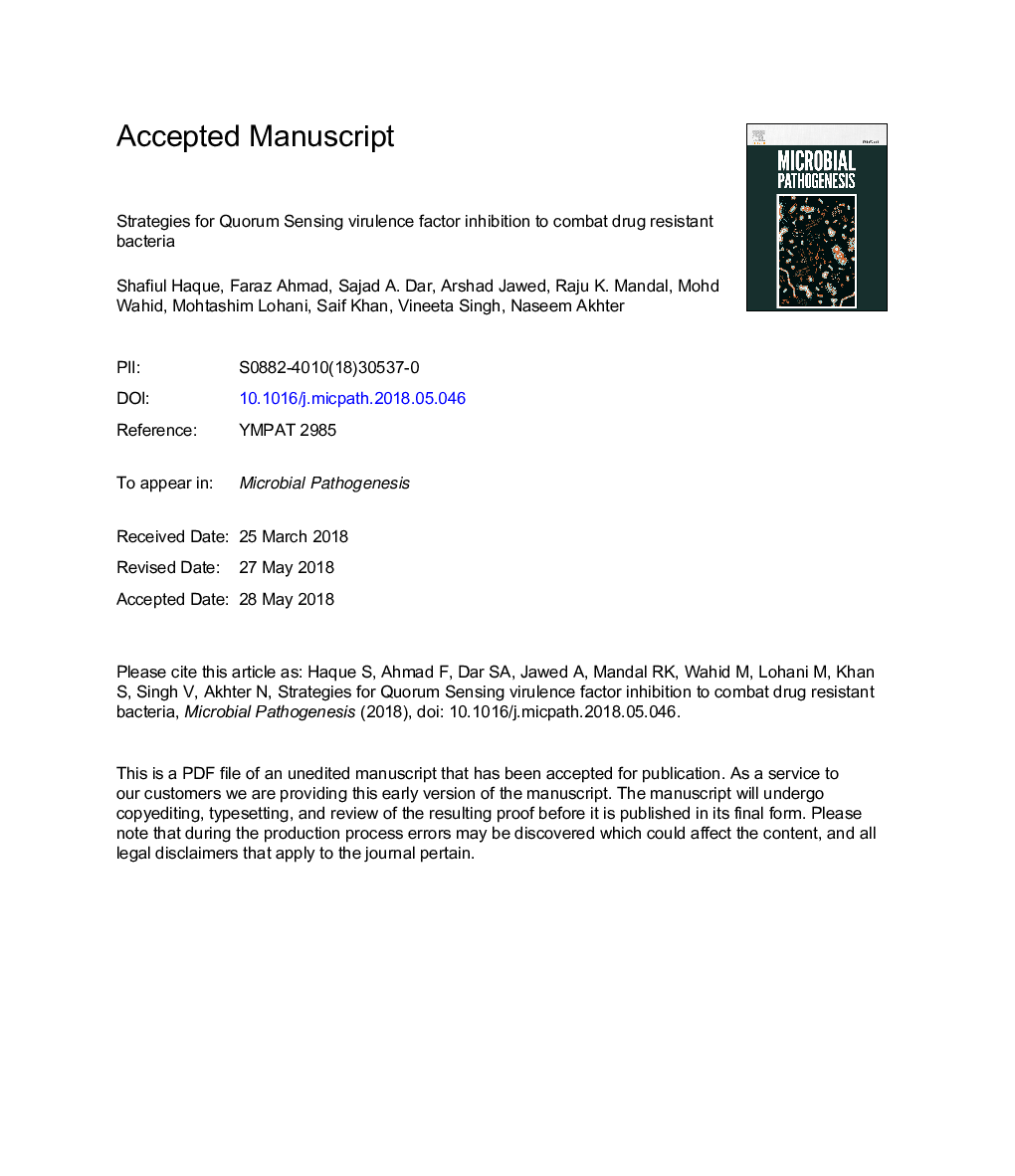| Article ID | Journal | Published Year | Pages | File Type |
|---|---|---|---|---|
| 8749382 | Microbial Pathogenesis | 2018 | 45 Pages |
Abstract
Quorum sensing (QS) is a complex bacterial intercellular communication system. It is mediated by molecules called auto-inducers (AIs) and allows coordinated responses to a variety of environmental signals by inducing alterations in gene expression. Communication through QS can tremendously stimulate the pathogenicity and virulence via multiple mechanisms in pathogenic bacteria. The present review explores the major types of multitudinous QS systems known in Gram-positive and Gram-negative bacteria and their roles in bacterial pathogenesis and drug resistance. Because bacterial resistance to antibiotics is increasingly becoming a significant clinical challenge to human health; alternate strategies to combat drug resistance are warranted. Targeting bacterial pathogenicity by interruptions in QS using natural QS inhibitors and synthetic quorum-quenching analogs are being increasingly considered for development of next generation antimicrobials. The review highlights the recent advancements in discovery of promising new QS modulators and their efficiency in controlling infections caused by multidrug-resistant bacterial pathogens.
Related Topics
Life Sciences
Immunology and Microbiology
Microbiology
Authors
Shafiul Haque, Faraz Ahmad, Sajad A. Dar, Arshad Jawed, Raju K. Mandal, Mohd Wahid, Mohtashim Lohani, Saif Khan, Vineeta Singh, Naseem Akhter,
